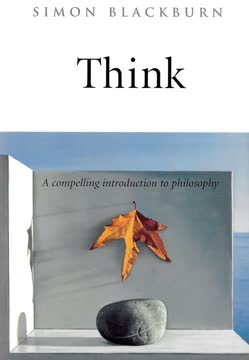가지 주요 요점
1. 마르크스 철학은 헤겔과 자본주의에 대한 비판에서 출발했다
마르크스는 헤겔을 현실로 끌어내리는 이 아이디어를 포착했고, 그 역시 헤겔의 방법을 사용하여 인간의 현재 물질적, 경제적 조건을 공격하기 시작했다.
헤겔적 뿌리. 마르크스의 철학적 여정은 헤겔의 관념론에 대한 비판에서 시작되었다. 헤겔이 역사를 정신의 진보로 보았던 반면, 마르크스는 이 개념을 뒤집어 물질적 조건과 경제적 관계가 인간의 의식과 사회를 형성한다고 주장했다. 이 물질주의적 접근은 마르크스의 자본주의 분석과 사회 변혁에 대한 비전의 기초가 되었다.
자본주의 비판. 파리에서 사회주의 사상과 처음 접하고 영국의 산업 조건을 관찰한 마르크스는 자본주의에 대한 비판적 견해를 발전시켰다. 그는 자본주의를 생산적이지만 깊은 불평등과 소외를 초래하는 체제로 보았다. 이 비판은 그의 평생의 작업의 핵심을 이루었고, 그의 대작 "자본론"으로 절정에 달했다.
2. 역사적 유물론: 경제적 힘이 사회를 형성한다
물질적 생활의 생산 방식이 사회적, 정치적, 지적 생활 과정을 조건짓는다. 인간의 의식이 그들의 존재를 결정하는 것이 아니라, 오히려 그들의 사회적 존재가 그들의 의식을 결정한다.
경제적 기반과 상부구조. 마르크스는 사회의 경제 체제(기반)가 사회적, 정치적, 이데올로기적 구조(상부구조)를 결정한다고 주장했다. 이는 법, 정치, 문화, 심지어 종교까지도 근본적인 경제 조건과 생산 관계에 의해 형성된다는 것을 의미한다.
역사적 유물론. 마르크스에 따르면, 역사는 생산 방식(예: 원시 공산주의, 노예 사회, 봉건제, 자본주의, 사회주의/공산주의)의 변화를 통해 진보하며, 이는 생산력(기술, 노동)과 생산 관계(재산 소유, 계급 구조) 간의 모순에 의해 추진된다. 이러한 모순은 계급 갈등을 초래하고 결국 사회 혁명을 통해 사회를 변혁시킨다.
생산 방식:
- 원시 공산주의
- 노예 사회
- 봉건제
- 자본주의
- 사회주의/공산주의
3. 소외: 자본주의는 노동자들을 그들의 노동과 인간성에서 소외시킨다
노동자는 자신의 생명을 대상에 투입하며, 이는 더 이상 그에게 속하지 않고 대상에 속하게 된다 … 노동자의 그의 제품에 대한 외화는 그의 노동이 대상이 되고 외부 존재가 되며, 그가 그것을 외부에서 독립적이고 이질적으로 존재하게 하며, 그가 대상에 빌려준 생명이 그를 적대적이고 이질적으로 대면하게 한다는 것을 의미한다.
네 가지 소외 유형. 마르크스는 자본주의가 노동자들을 네 가지 방식으로 소외시킨다고 지적했다:
- 그들의 노동의 산물로부터
- 생산 행위로부터
- 그들의 종족 존재(인간 본성)로부터
- 다른 노동자들로부터
비인간화 효과. 마르크스는 자본주의 하에서 노동이 인간 창의성의 충만한 표현이 아니라 외부적이고 강제된 활동이 된다고 주장했다. 노동자들은 상품으로 전락하며, 그들의 노동은 시장에서 사고 팔린다. 이 소외는 직장 밖에서도 인간 생활과 관계의 모든 측면에 영향을 미친다.
4. 잉여가치: 자본주의의 핵심에 있는 착취
노동자가 그의 노동의 사용가치가 아닌 교환가치만을 얻는다는 사실은 그가 자신을 부양하기 위해 충분한 돈을 벌기 위해 하루에 12시간을 일해야 한다는 것을 의미하며, 그의 노동은 필요한 음식, 의복, 주거 등의 사용가치를 6시간 만에 생산한다.
노동 가치 이론. 마르크스는 고전 경제학을 바탕으로 상품의 가치는 그것을 생산하는 데 필요한 사회적으로 필요한 노동 시간에 의해 결정된다고 주장했다. 그러나 그는 더 나아가 자본주의의 근본적인 착취를 폭로했다.
잉여가치의 추출. 마르크스는 자본가들이 노동자들에게 그들의 노동력(일할 능력)에 대해서만 임금을 지불하지만, 그들의 노동이 창출하는 전체 가치를 통해 이익을 얻는다고 주장했다. 노동자들이 받는 임금과 그들이 창출하는 가치의 차이는 잉여가치이며, 이는 자본가가 이윤으로 취하는 것이다. 이 착취는 자본 축적과 계급 불평등의 원천이다.
예시:
- 노동자의 일일 임금: $100
- 하루에 창출된 가치: $200
- 추출된 잉여가치: $100
5. 계급 투쟁: 역사적 변화의 원동력
지금까지 존재한 모든 사회의 역사는 계급 투쟁의 역사이다.
이분법적 계급 구조. 마르크스는 사회를 근본적으로 두 주요 계급으로 나누었다:
- 부르주아지: 생산 수단의 소유자
- 프롤레타리아트: 자신의 노동을 파는 노동자
역사적 변증법. 마르크스에 따르면, 계급 투쟁은 역사적 변화의 원동력이다. 각 생산 방식은 자체적인 계급 대립을 만들어내며, 이는 결국 혁명으로 이어져 새로운 사회 질서를 확립한다.
프롤레타리아 혁명. 마르크스는 자본주의의 내재된 모순이 그 몰락으로 이어질 것이라고 예측했다. 프롤레타리아트는 "잃을 것이 없는 사슬뿐"인 보편적 계급으로서 부르주아지를 타도하고 사회주의 사회를 수립하며, 궁극적으로 공산주의로 나아갈 것이다.
6. 공산주의: 계급 없는, 국가 없는 사회에 대한 마르크스의 비전
공산주의는 인간과 자연 사이, 인간과 인간 사이의 대립의 진정한 해결책이다. 그것은 존재와 본질, 대상화와 자기 확인, 자유와 필연성, 개인과 종족 사이의 투쟁의 진정한 해결책이다.
사유재산의 폐지. 마르크스의 공산주의 비전의 핵심은 생산 수단의 집단적 소유로, 이는 계급 착취의 근거를 제거한다.
인간 본성의 변형. 마르크스는 공산주의가 경제적 관계뿐만 아니라 인간의 의식도 변화시킬 것이라고 믿었다. 자본주의의 소외와 경쟁이 없는 상태에서 사람들은 사회적 존재로서 자신의 잠재력을 최대한 발휘할 수 있을 것이다.
국가 없는 사회. 공산주의의 최종 단계에서 마르크스는 국가의 "소멸"을 예상했다. 계급 대립이 사라지면 사회는 "능력에 따라, 필요에 따라"의 원칙에 따라 조직될 수 있을 것이다.
7. 마르크스의 지속적인 관련성: 불평등, 세계화, 환경 위기
그 제품에 대한 끊임없이 확장되는 시장의 필요성은 부르주아지를 전 세계로 쫓아다니게 한다. 그것은 어디에나 둥지를 틀고, 어디에나 정착하며, 어디에나 연결을 확립해야 한다.
지속적인 불평등. 마르크스의 빈곤화와 혁명에 대한 예측은 실현되지 않았지만, 자본주의가 부를 집중시키는 경향에 대한 그의 통찰은 여전히 유효하다. 토마 피케티와 같은 경제학자들의 연구는 증가하는 불평등에 대한 새로운 관심을 불러일으켰다.
세계화. 마르크스의 자본주의의 확장적 성격에 대한 분석은 세계 시장의 창출과 생산의 끊임없는 혁신을 포함한 현대 세계화의 많은 측면을 예견했다.
환경 위기. 일부 현대 사상가들은 자본주의의 무한 성장 추구에 대한 마르크스의 비판을 바탕으로 환경 문제, 특히 기후 변화에 대응하고자 한다. "에코사회주의자"들은 생태적 지속 가능성을 달성하기 위해 자본주의를 극복해야 한다고 주장한다.
지속적인 관련성의 영역:
- 경제적 불평등에 대한 비판
- 경제 위기의 분석
- 세계화의 역학에 대한 통찰
- 자본주의에 대한 환경적 비판의 기초
마지막 업데이트 날짜:
FAQ
What's "Marx: A Very Short Introduction" about?
- Overview: The book provides a concise introduction to the life, ideas, and influence of Karl Marx, written by philosopher Peter Singer.
- Purpose: It aims to make Marx's complex theories accessible to general readers, offering a clear explanation of his central ideas.
- Content: The book covers Marx's biography, his philosophical development, his economic theories, and the impact of his ideas on history and contemporary thought.
- Series Context: It is part of the "Very Short Introductions" series, which offers brief overviews of a wide range of subjects.
Why should I read "Marx: A Very Short Introduction"?
- Understanding Marx: The book provides a foundational understanding of Marx's ideas, which have significantly influenced political, economic, and social thought.
- Relevance: Marx's theories continue to be relevant in discussions about capitalism, socialism, and economic inequality.
- Clarity: Peter Singer presents Marx's complex ideas in a clear and accessible manner, making it suitable for readers new to Marxist theory.
- Contextual Insight: The book places Marx's ideas within the historical and philosophical context, enhancing comprehension of his impact.
What are the key takeaways of "Marx: A Very Short Introduction"?
- Materialist Conception of History: Marx's theory that economic forces drive historical change and shape society's structure.
- Alienation: The concept that under capitalism, workers are alienated from the products of their labor, leading to a loss of freedom and self-realization.
- Surplus Value: Marx's economic theory that capitalists profit by extracting surplus value from workers' labor.
- Revolution and Communism: Marx's belief in the eventual overthrow of capitalism by the proletariat, leading to a classless, communist society.
What is the materialist conception of history according to Marx?
- Economic Base: Marx argues that the economic structure of society (the base) determines its legal, political, and ideological superstructure.
- Productive Forces: The development of productive forces (technology, labor) drives historical change and societal evolution.
- Class Struggle: History is characterized by class struggles, which arise from conflicts between different economic classes.
- Inevitable Change: Marx believed that these economic forces would inevitably lead to the collapse of capitalism and the rise of communism.
How does Marx define alienation in "Marx: A Very Short Introduction"?
- Worker's Alienation: Workers are alienated from the products of their labor, which are owned and controlled by capitalists.
- Loss of Self: This alienation leads to a loss of self and a disconnection from one's own humanity and creativity.
- Social Relations: Alienation extends to social relations, where individuals see each other as competitors rather than collaborators.
- Resolution: Marx believed that communism would resolve alienation by abolishing private property and enabling collective ownership.
What is surplus value in Marx's economic theory?
- Definition: Surplus value is the difference between the value produced by labor and the wages paid to the laborer.
- Capitalist Profit: Capitalists extract surplus value from workers, which is the source of their profit.
- Labor Exploitation: This process is seen as exploitation, as workers do not receive the full value of their labor.
- Economic Critique: Surplus value is central to Marx's critique of capitalism, highlighting inherent inequalities in the system.
How does Peter Singer address Marx's relevance today?
- Contemporary Issues: Singer discusses how Marx's ideas remain relevant in addressing modern issues like economic inequality and globalization.
- Critique of Capitalism: Marx's critique of capitalism's tendency to concentrate wealth and power is still pertinent.
- Environmental Concerns: The book touches on how Marxist ideas can inform discussions on environmental sustainability and capitalism's impact on nature.
- Philosophical Insights: Marx's philosophical insights into human nature and freedom continue to influence contemporary thought.
What are the best quotes from "Marx: A Very Short Introduction" and what do they mean?
- "The weapon of criticism cannot, of course, supplant the criticism of weapons; material force must be overthrown by material force." This quote highlights Marx's belief in the necessity of revolutionary action to achieve societal change.
- "The philosophers have only interpreted the world in various ways; the point is, to change it." Engraved on Marx's tombstone, this quote emphasizes the importance of practical action over mere theoretical interpretation.
- "Communism is the riddle of history solved." This reflects Marx's view that communism would resolve the contradictions and conflicts inherent in capitalist societies.
How does Peter Singer explain Marx's concept of freedom?
- Beyond Liberal Freedom: Marx's concept of freedom goes beyond the liberal idea of non-interference, focusing on collective control over social and economic conditions.
- True Freedom: True freedom, for Marx, involves the ability to shape one's own life and society, free from economic constraints.
- Collective Action: Marx believed that collective action and planning are necessary to achieve true freedom for all.
- Critique of Capitalism: Capitalism, according to Marx, limits freedom by subjecting individuals to the impersonal forces of the market.
What role does the proletariat play in Marx's theory?
- Revolutionary Class: The proletariat, or working class, is seen as the revolutionary class that will overthrow capitalism.
- Universal Sufferings: Marx believed the proletariat's universal sufferings would drive them to seek a complete transformation of society.
- Agent of Change: The proletariat is the agent of change, realizing the potential for human freedom and ending alienation.
- Philosophical Weapon: Marx saw the proletariat as the material force that would realize the philosophical ideals of freedom and equality.
How does "Marx: A Very Short Introduction" address Marx's predictions about capitalism?
- Predictions: Marx predicted that capitalism would lead to increasing inequality, falling rates of profit, and eventual collapse.
- Critique of Predictions: Singer discusses how many of Marx's predictions have not come to pass, particularly in industrialized nations.
- Relevance of Critique: Despite inaccuracies, Marx's critique of capitalism's tendencies remains relevant in discussions of economic inequality.
- Philosophical Legacy: Marx's philosophical insights continue to influence debates on freedom, human nature, and societal change.
How does Peter Singer view Marx's impact on modern thought?
- Influence on Disciplines: Marx's ideas have profoundly influenced history, sociology, philosophy, and the arts.
- Enduring Legacy: Marx's critique of capitalism and his vision of a classless society continue to inspire political movements and academic discourse.
- Complex Legacy: Singer acknowledges the complexity of Marx's legacy, including both the positive and negative outcomes of Marxist-inspired regimes.
- Philosophical Contributions: Marx's contributions to understanding human freedom and societal structures remain significant in contemporary thought.
리뷰
고교 시절 촉망받는 야구선수였던 저자는 연습 중 동료의 야구 배트에 얼굴을 정통으로 강타당하는 큰 사고를 당했다. 이 사고로 얼굴 뼈가 30조각이 났고, 왼쪽 눈이 튀어나와 실명 위기까지 왔으며, 심정지가 세 번이나 일어났다. 걸을 수조차 없었던 저자는 절망에 빠지는 대신 지금 당장 할 수 있는 아주 작은 일이라도 찾아 그것을 반복하자고 마음먹는다.
마르크스: 아주 짧은 소개는 다양한 평가를 받는다. 독자들은 마르크스의 사상과 전기를 간결하게 개요한 점과 싱어의 명확한 글쓰기를 높이 평가한다. 그러나 일부는 마르크스의 경제 예측에 대한 싱어의 경시적인 태도와 마르크스주의 해석을 비판한다. 이 책은 마르크스 철학을 이해하는 데 좋은 출발점으로 여겨지지만, 독자들은 싱어의 분석에 잠재적인 편견이 있을 수 있다고 지적한다. 어떤 이들은 주요 마르크스주의 개념을 이해하는 데 도움이 된다고 생각하는 반면, 다른 이들은 깊이가 부족하고 마르크스의 사상을 잘못 전달한다고 주장한다.
Very Short Introductions Series Series

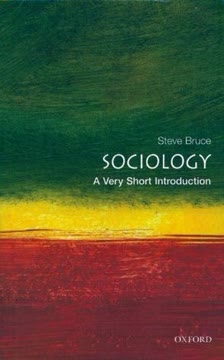
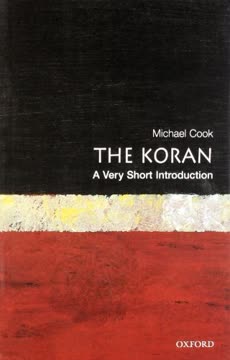
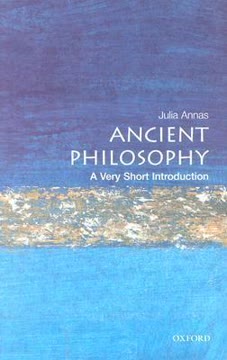
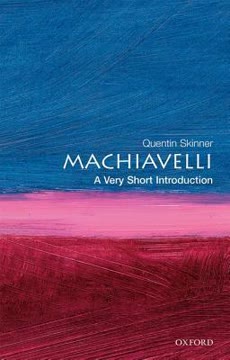
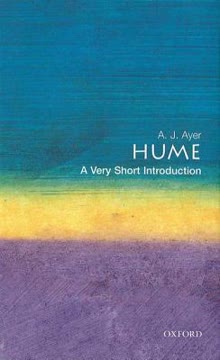

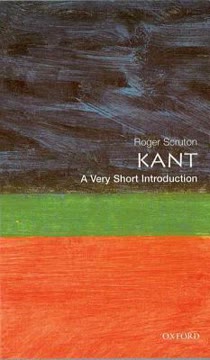
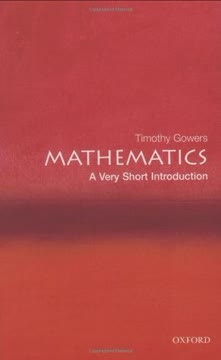
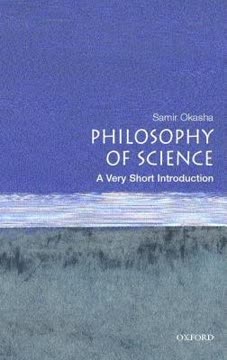
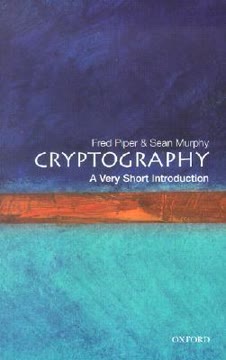
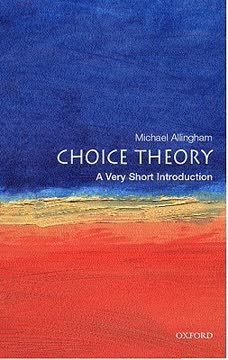
Similar Books
